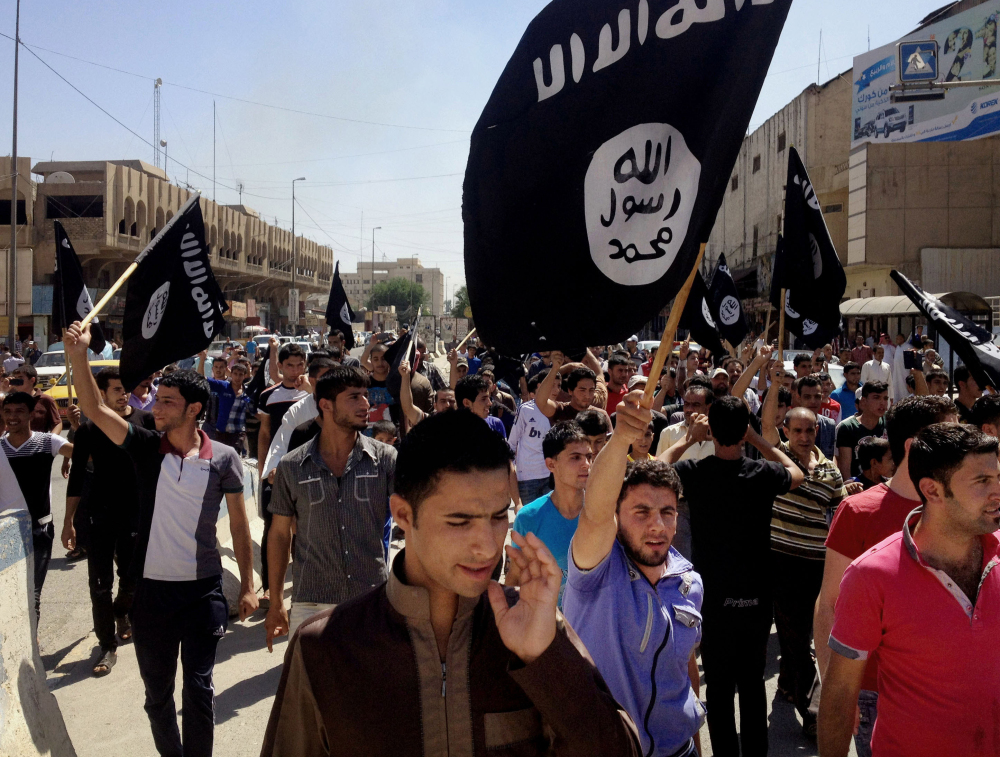IRBIL, Iraq — The Islamic State is accumulating gold, silver and copper in markets throughout northern and western Iraq, dealers report, in an apparent effort to stockpile enough precious metal to follow through on a pledge to mint its own currency.
On Nov. 11, the Islamic State’s Beit al Mal, an ancient Islamic term akin to “Department of Treasury,” announced that the group would reintroduce the dinar currency of the Umayyad Caliphate, which ruled an empire that stretched from modern Iran to Spain for much of the seventh and eighth centuries. The announcement – which included images of three types of coins in gold, copper and silver – drew skepticism from experts, who doubted the Islamic State could arrange a system to mint and issue a modern currency.
But interviews with dealers in precious metals indicate that the Islamic State has begun the complex process of issuing the currency, a reminder that as the best-financed non-state actor in history – with a revenue stream from oil sales and aggressive taxation – it’s been able to install bureaucratic controls over the large swath of territory it has claimed in Iraq and Syria.
Hajj Samir, a gold trader in the city of Fallujah who asked that his full name not be used, said that since the announcement, foreign jihadists had been buying all of the gold and silver in the city’s markets.
He said he alone had sold more than 15 pounds of gold to foreigners who were members of the Islamic State. “They said it was for gifts for their wives, but now I know why, and all the traders say the same thing,” he said. “We’ve been making trips to Baghdad to get more, and they buy all of it.”
Osman Ahmed, a 37-year-old gold trader in Mosul, said he’d been selling large amounts of gold and silver in the city, even though he now spends most of his time in Irbil, the capital of Iraq’s Kurdish region.
“We don’t ask why they’re buying so much,” he said. “But even silver in small shops outside the city is sold out.”
The purchases have reached the point that traders like Ahmed have been traveling between Mosul and the Kurdish cities of Irbil and Suleimaniyah to renew their stocks. The Islamic State buys it all, he said.
Zakaria Ahmed, 33, a Mosul resident who is no relation to Osman Ahmed and whose brother is an Islamic State official, said he’d been told that the currency project was encountering difficulties because U.S.-led coalition airstrikes had made moving valuables more difficult. The airstrikes also have added to worries that any minting facility could be destroyed from the air.
But he said his understanding was that planning for the currency was proceeding apace.
Send questions/comments to the editors.



Success. Please wait for the page to reload. If the page does not reload within 5 seconds, please refresh the page.
Enter your email and password to access comments.
Hi, to comment on stories you must . This profile is in addition to your subscription and website login.
Already have a commenting profile? .
Invalid username/password.
Please check your email to confirm and complete your registration.
Only subscribers are eligible to post comments. Please subscribe or login first for digital access. Here’s why.
Use the form below to reset your password. When you've submitted your account email, we will send an email with a reset code.